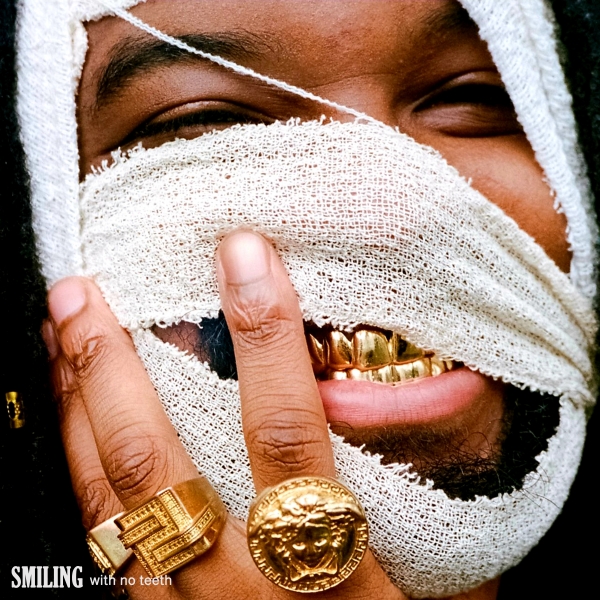The Ghanaian-Australian artist shines on his ambitious and musically kaleidoscopic debut.
Genesis Owusu is a musical tour-de-force, and he’s only just arrived. With his debut, Smiling with No Teeth, the Ghanaian-Australian artist has delivered an experimental opus with an insanely impressive and absolutely electrifying avant-garde nature.
It’s very rare for an artist this early in their career to have such a refined musical palette and dynamic vision, but Owusu has just that.
He’s got clear influences from all over the musical spectrum, from hip hop to new wave, jazz and funk to R&B and post-punk – even including some industrial elements. Smiling with No Teeth somehow brings all of these pre-existing contrasting influences together and creates a completely unique soundscape – a blend of all of these familiar elements, culminating in a remarkable collage of influences that somehow co-exist in perfect harmony.
He can easily go from channelling Prince on one track to channelling the visceral shouting of Death Grips’ MC Ride on the next. His music and vocal delivery are as fluid as can be, and his mastery of every style and genre in his repertoire is incredibly impressive and equally entrancing.
It helps that lyrically and thematically, this project is airtight throughout as well, exploring both the demons that plague Owusu as an individual and those that plague society as a whole. He manages to fit seemingly cathartic moments of commentary on mental health, racism and substance abuse, among other things, within often up-tempo tracks, like on the LP’s second track “The Other Black Dog.”
This juxtaposition of often upbeat instrumentation against the darkness that Owusu’s lyricism tends to highlight isn’t necessarily revolutionary, but it is an incredibly nuanced way to exemplify the album’s core concept.
Smiling with No Teeth may seem as random a title as any, but when you get to the root of the music, the title is an allegory for the thematic and stylistic nature of the music. A closed smile is often forced and used to hide feelings other than genuine happiness, which, in a way, is exactly what the lively nature of a good amount of this album’s soundscape represents: a veil of fun, with the lyrics’ true darkness hiding behind it.
This is an LP that not only checks every box but goes outside of these boxes and finds ways to achieve even more. It would be a magnificent body of work for any artist, but for a debut album, this is beyond spectacular.
To liken Genesis Owusu to a chameleon in that regard would be a disservice to exactly what he has accomplished here. It’s not he who adapts to the genres incorporated in his music, but it is him that forces the elements he takes from these genres to bend to his will and fit his sound. He’s not just impressive, his virtuosity at this stage in his career is practically unheard of, and if this album is any indication, he has the potential to become a generational talent.
9/10
Trial Track: “The Other Black Dog”
